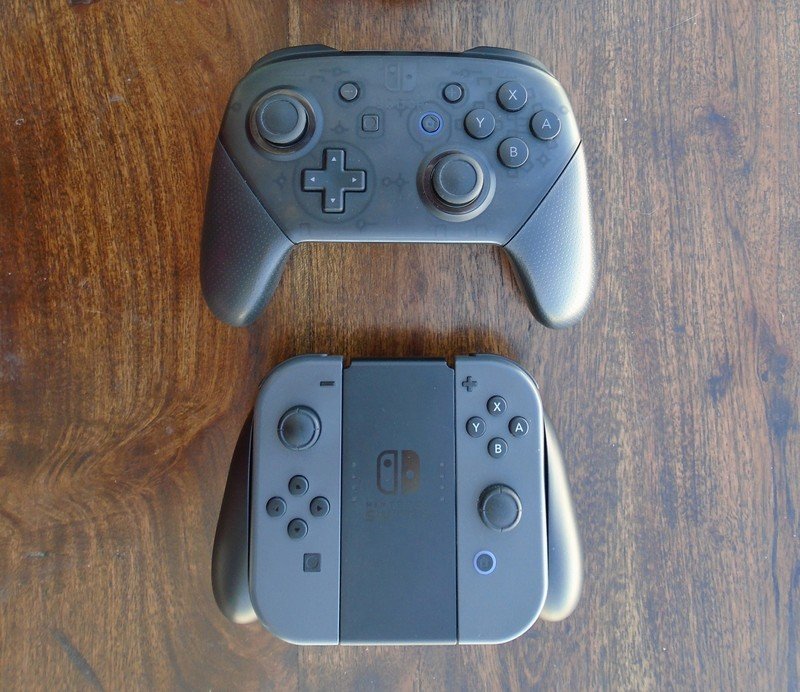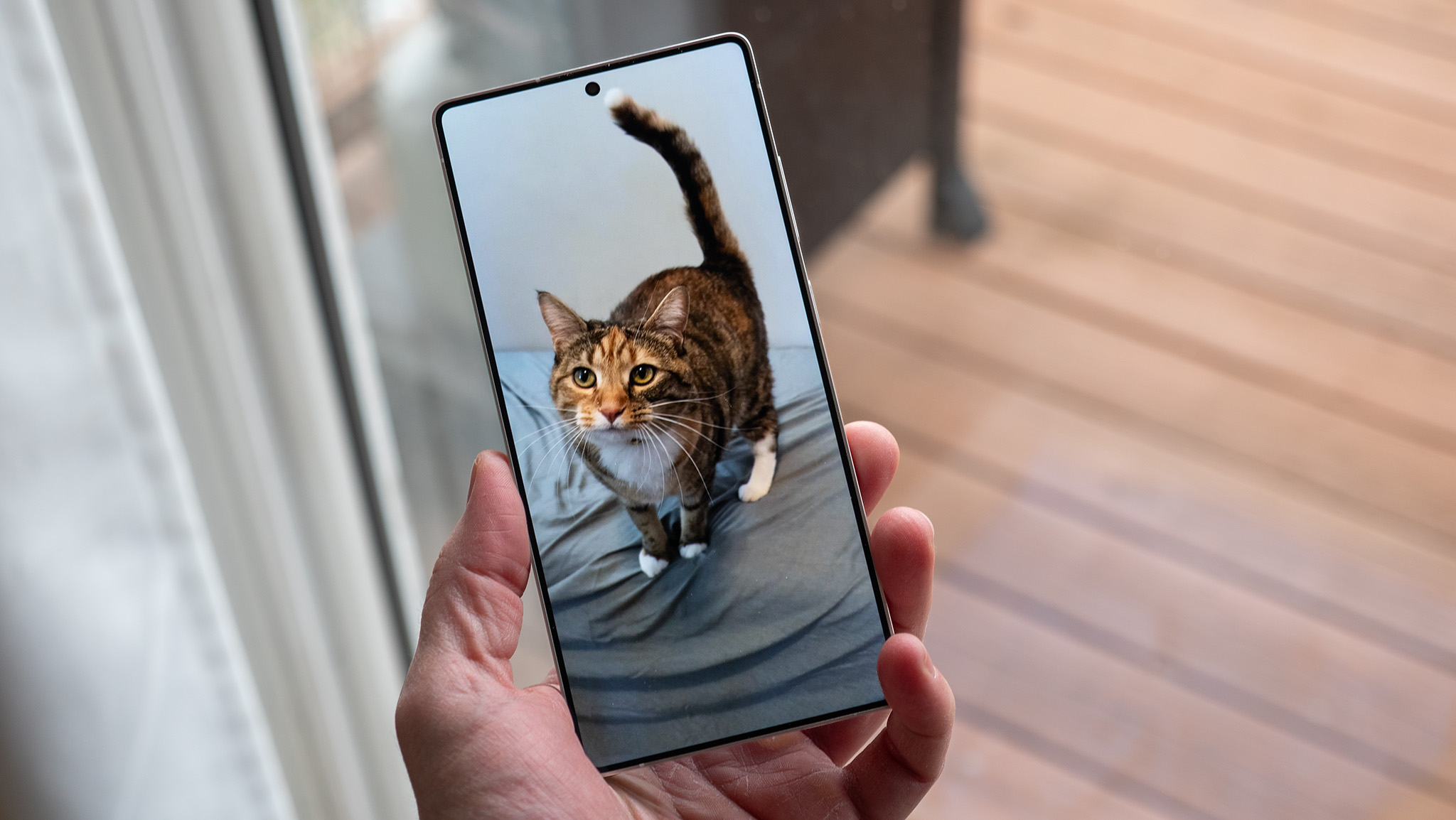Google Stadia vs. Nintendo Switch: Which is better?
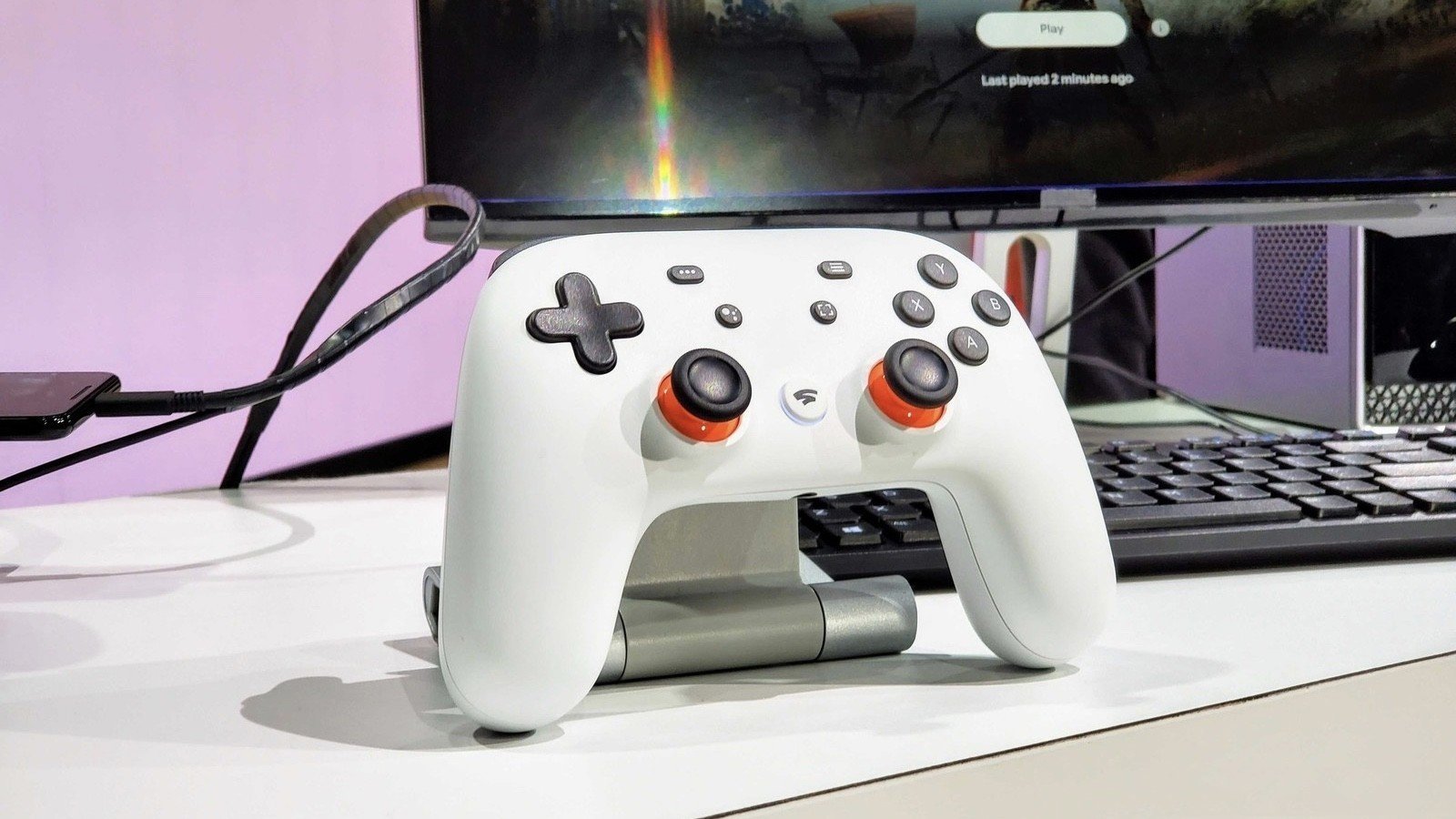
Get the latest news from Android Central, your trusted companion in the world of Android
You are now subscribed
Your newsletter sign-up was successful
Nintendo Switch

You can use the Nintendo Switch as a handheld gaming system on the go or as a traditional TV console when at home. There are already over 400 games for the system including over 50 exclusives that you won't be able to play anywhere else. Best of all, you don't need an internet connection in order to play single-player games.
Nintendo Switch
Hybrid Hero
Google Stadia

The Google Stadia works on a variety of devices. You can start your game on a computer and then continue playing on a tablet or TV. This is something we've never seen before and could change the gaming world as we know it. If you have the proper internet connection, you can experience fast loading times and beautiful visuals.
Google Stadia
Future option
The main difference between the two is that Google Stadia isn't out yet. It'll be available starting in November in 14 select countries, including the U.S. If you want something now, the Switch is the best option. However, when you start to break it all down, things become more complicated.
In-depth analysis: Switch vs. Stadia
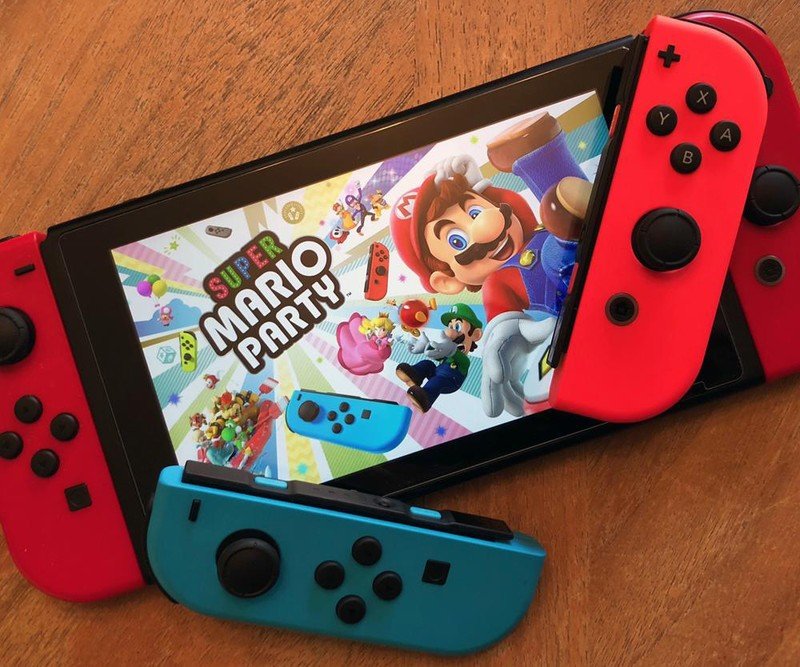
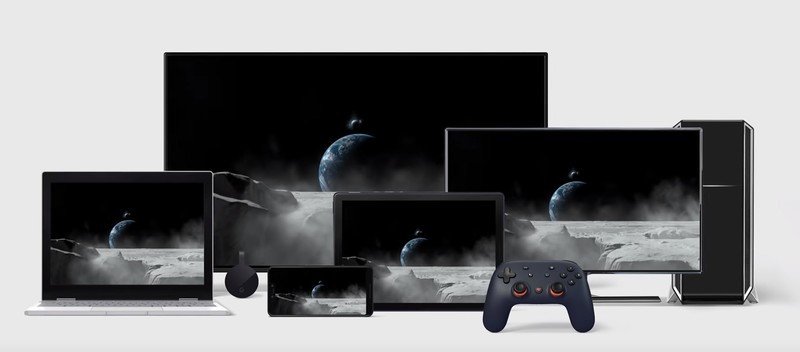
| Header Cell - Column 0 | Nintendo Switch | Google Stadia |
|---|---|---|
| Price | $300 | $0 (playing on computer, tablet, or smartphone)/$130 (Founder's Edition) |
| Average game prices | $5 - $60 (Indie)/$40 - $60 (first-party) | $40 - $60 |
| Subscription required | Only for online multiplayer ($20/yr) | No |
| Hardware needed for TV play | Console with Joy-Cons/Dock | Controller/Chromecast Ultra |
| Number of games | 400+ | 31 |
| Exclusive games | 48+ | 2 |
| Internet required | Only for online multiplayer | Yes |
| Game data storage | 32GB internal storage/microSD cards | Google's Data Center |
| Where to play | TV/ handheld console | Compatible TVs, desktops, laptops, tablets, and smartphones |
Initial price
The Switch definitely is the more expensive gaming option since you'll need to buy a $300 console in order to play. In comparison, once the console-less Stadia's limited Founder's Edition is no longer available, it'll only cost you as much as $140 to play on TV. You can get a Chromecast Ultra and a compatible controller, like the official Stadia Controller, but both aren't necessary to play on Stadia, so it can potentially be even cheaper, especially if you don't play on your TV.
To play Stadia on laptop, desktop computer, or tablet you won't need any additional accessories, just access to a Chrome browser. Computer gamers still have the option of purchasing a Stadia controller if they want, though. Things get a little different when it comes to smartphones. Currently, Stadia is only available via the Stadia app on Pixel 3 and 3a, but Google intends to make Stadia accessible on more smartphones (although it's unclear long that will take).
Subscriptions and games
Get the latest news from Android Central, your trusted companion in the world of Android
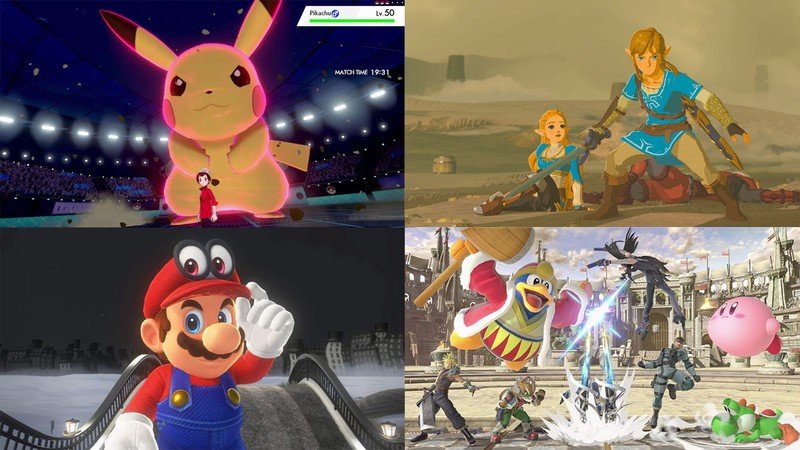
A subscription isn't necessary for either Switch or Stadia, but there are benefits. A Nintendo Switch Online subscription allows you to play online multiplayer and gives you access to a library of NeoGeo games. Pay $20 per year, $4 for a month, $8 for three months, or get a family plan for up to eight Nintendo accounts for $35 per year. In comparison, the Stadia Pro subscription is $10 a month (annual pricing hasn't been announced yet) and gives you access to some free games as well as discounts on select game purchases. You'll still need to pay full price for specific games, especially new ones. There will be a Stadia Base option available in the future, which will be free but won't give you access to some Stadia features, like 4K streaming.
There are over 400 games available for the Nintendo Switch and that number is growing. What's more, many of the best ones are exclusive to the Switch, so you won't be able to play them anywhere else. Since Google Stadia isn't out yet, we only know that it'll have a library of 31 games at launch with only two of those being exclusives. If you want access to more games upfront the Switch is a better offer at the moment, although the Stadia number could change in the upcoming months.
With the Switch, you can buy both digital and physical copies of games. You can often buy second-hand physical copies at lower prices, which is something you won't be able to do with the digital-only Stadia service. That cost difference could add up over time.
The controller
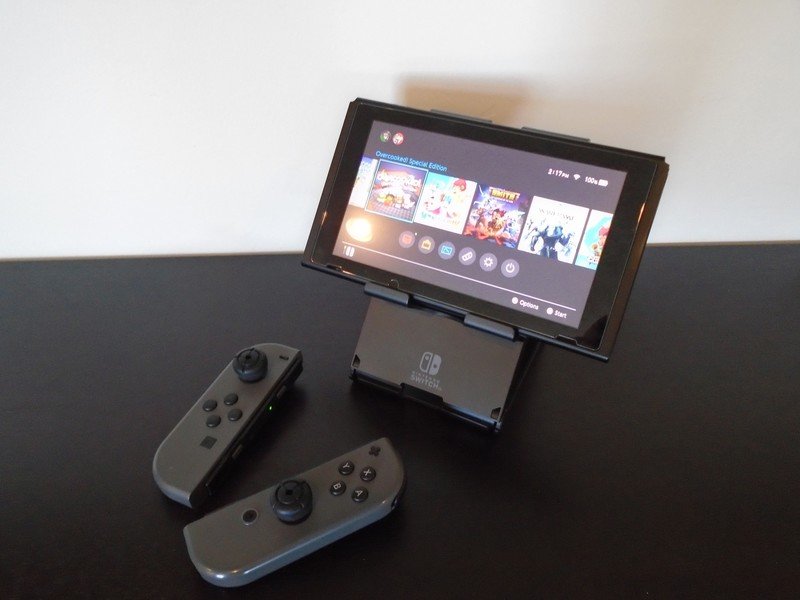
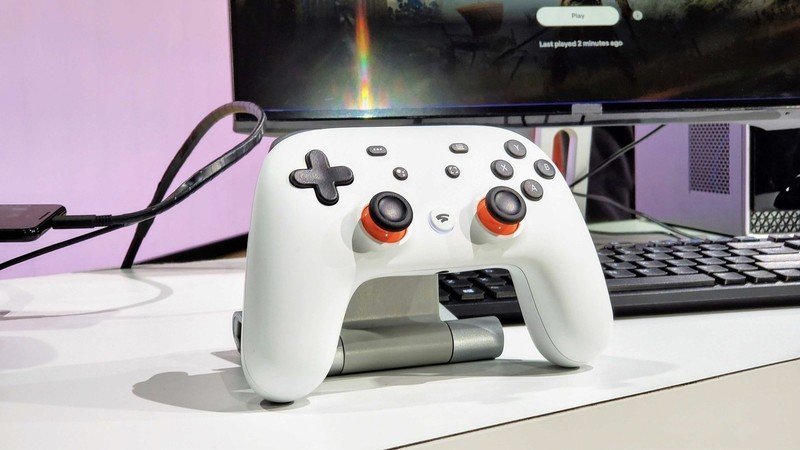
Stadia's controller looks like Nintendo's Pro Controller and every other traditional controller on the market. It's a more comfortable option than the Joy-Cons that come with the Nintendo Switch.
Both controllers feature two joysticks, a D-pad, four trigger buttons, four main buttons, a menu button, and a screenshot button for taking both videos and pictures. Stadia's large "S" button in the center quickly launches the Stadia service on your Chromecast-connected TV. Unlike Nintendo's Joy-Cons or Pro Controller, this one also features a 3.5mm headphone jack for plugging in headphones or a headset and a Google Assistant button, which you can use to make YouTube walkthrough videos show up via voice command.
A controller is only necessary for playing Stadia on TV, it's optional for those who want to play on computer. The official Stadia Controller sells for $70 and comes in three colors: pearly white, just black, and wasabi. As with Nintendo's controllers there will be a number of additional third-party controllers that work with Stadia so you don't have to get the official one.
Gaming speeds, resolution, and audio
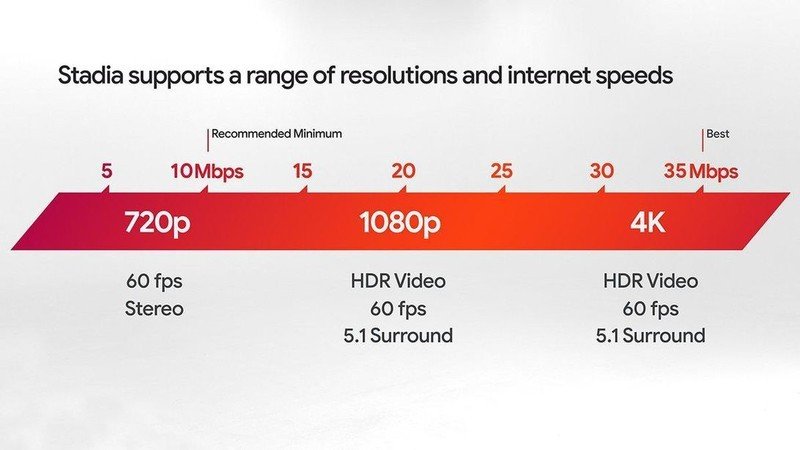
The type of experience you get with the Stadia depends on your internet speeds. Those with internet speeds of 35Mbps will have access up to 4K HDR video with 60fps and 5.1 surround sound (although you can only max out video and audio with a Stadia Pro subscription) whereas gamers with lower speeds around 10Mbps will have access to 720p resolution with 60fps and stereo.
Obviously Switch gamers will need decent internet speeds when downloading games or playing online multiplayer, but an internet connection isn't required all the time.
Compared to the Stadia and other consoles in this generation, the Nintendo Switch is definitely behind the curve when it comes to modern resolution, which makes most game graphics look less spectacular. However, while there are some Switch games that could benefit from better resolution, the majority of cartoony Nintendo characters and 8-bit games associated with the Switch don't really require it.
Downloads and storage space
Google makes a big deal of the fact that there will be no downloads, patches or installs when using Stadia, but what does this mean for you? If you have a strong internet connection and fast internet speeds this allows games to load incredibly fast. You can play a new purchase instantly instead of waiting several minutes to an hour for it to download like you do for the Switch. Additionally, you won't have to worry about running out of space on a hard drive when playing Stadia since all the data will be safe in Google's data center. I contacted Google to see if there was a cap to the amount of game data you could store on your account, but the representative told me that this information wasn't available at the moment.
In comparison, the Nintendo Switch downloads games directly to the console's internal storage or any inserted microSD cards. Because of this, you'll be able to play your game no matter what the internet connection is like since it's downloaded directly onto your system. Granted, online multiplayer still requires an internet connection for the Switch. The downside here is that if your Switch's internal storage space or microSD cards get full, you'll need to either get a new microSD card or delete game data to make room for more games.
Accessibility
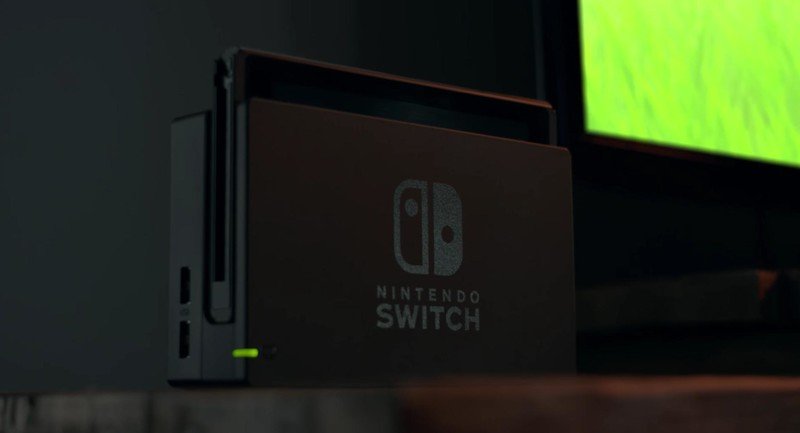
The Stadia works on compatible TVs, desktops, laptops, tablets, and smartphones. You might not be able to play your Switch games on as many devices, but the ability to transition between using it as a handheld gaming system or a traditional TV console using the included Dock gives it all the versatility you need.
The big downside to Stadia is that if your internet connection is spotty or there's a blackout, you won't be able to play. In comparison, Switch gives you true on-the-go accessibility since it doesn't rely on Wi-Fi. As long as you have battery power, you'll be able to play the Switch anywhere.
Parental controls
With the Switch, parents can set play time limits, make it so kids can't communicate with other players, control the types of games their kids can access, and can even set eShop passwords so kids won't be able to purchase games without approval. What makes it all the more convenient is that you can control all of this from your smartphone. At the moment, we are unaware if anything like this will exist on the Stadia.
Don't get us wrong, there are plenty of Mature-rated games on the Nintendo Switch, but Nintendo's approach to online-chat makes it safer for children to use. Nintendo games that have a chat feature usually limit posts to predetermined, friendly phrases so you don't have to worry as much about your kid talking to a shady adult or getting bullied online.
Additionally, most Switch games aren't compatible with a gaming headset so your kid won't be able to talk with online strangers. Of course, you should still check up on your child's internet correspondence, but the threat is much lower than with other gaming options.
The take-away
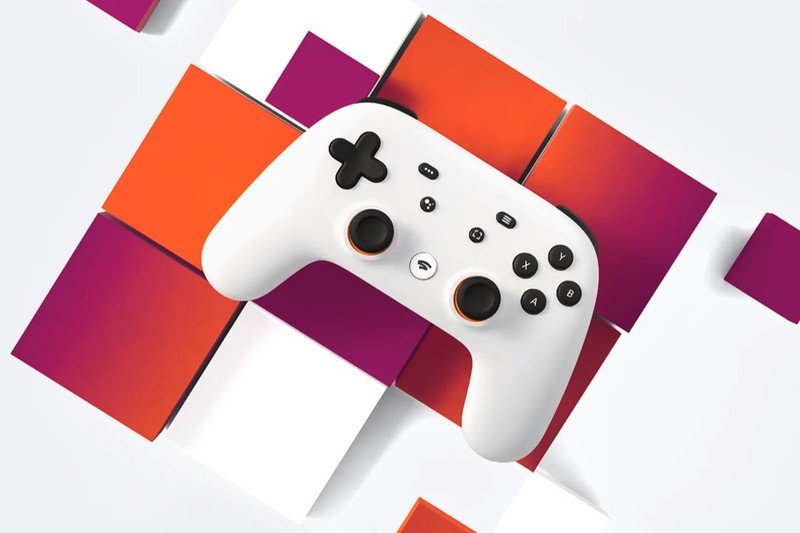
If you're trying to decide between the Nintendo Switch and the Google Stadia, we highly recommend going with the former. It costs more for a physical gaming system, but that also ensures that you'll be able to play anywhere you go, whether or not you have a good Wi-Fi connection. If you choose to purchase second-hand physical game cartridges, you'll be able to pay less for your games, which could make the Nintendo Switch the cheaper option in the long run. Additionally, there are currently hundreds more games available for the Switch.
Even though we think the Nintendo Switch is a better portable gaming system, we love the ingenuity Google Stadia brings. When it comes down to it, the Stadia gives you a less expensive gaming experience upfront and lets you continue your gaming sessions on any Stadia compatible devices where there is Wi-Fi. That's huge. Its low console-less cost also makes it more affordable for people on a tighter budget so you can spend your money on the games you want instead of the hardward it takes to run it.
As time goes on, perhaps the Stadia will evolve to becoming the best gaming system on the market. But for now, there are a few too many issues for it to have that honor.
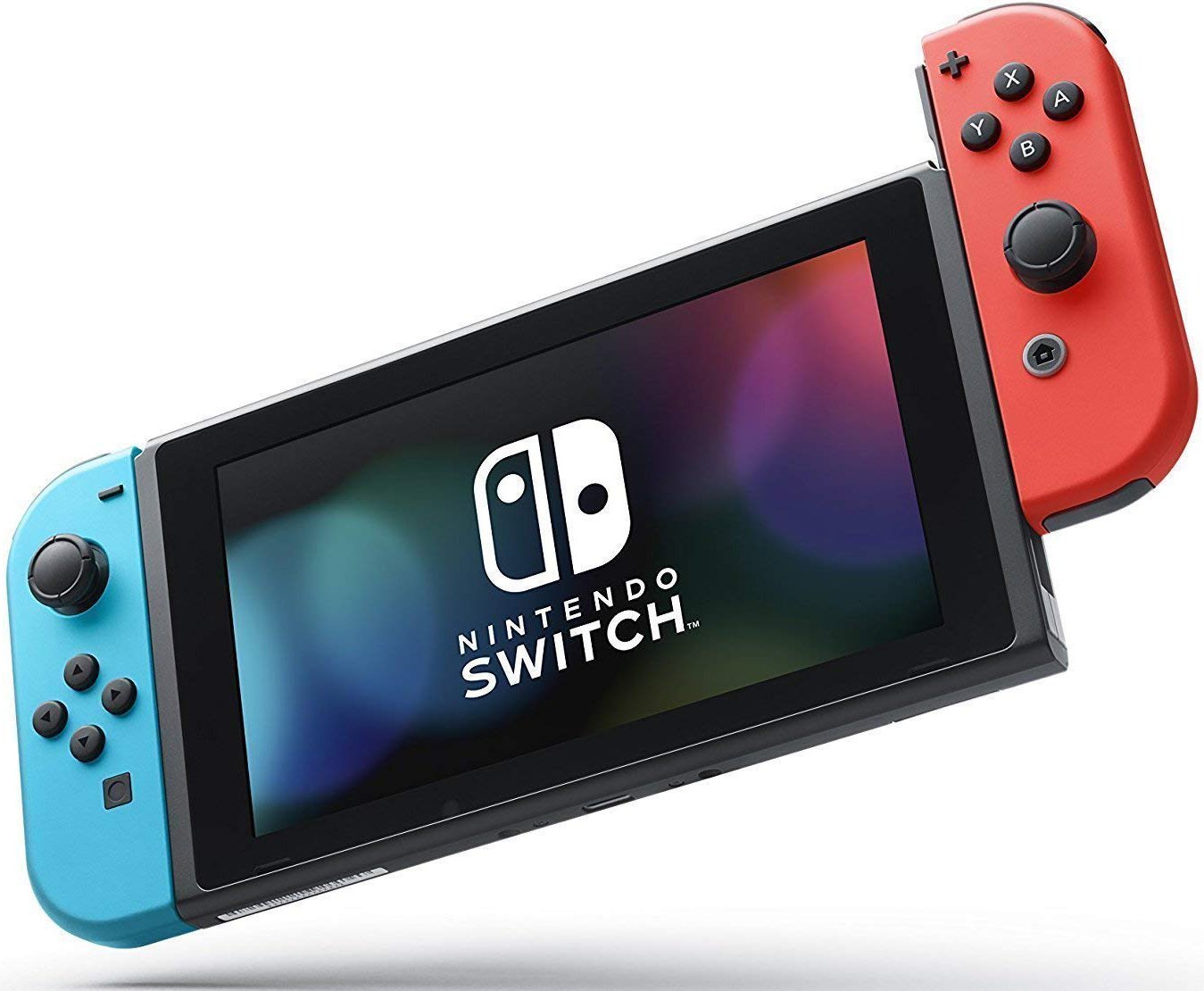
A gaming system that you can take anywhere
The Nintendo Switch can be played on either your TV or in your hands like a handheld gaming system. Immerse yourself in gaming during plane rides, on road trips, or any other vacation. Nintendo has a number of exclusive games and memorable characters that make it a worthwhile purchase.
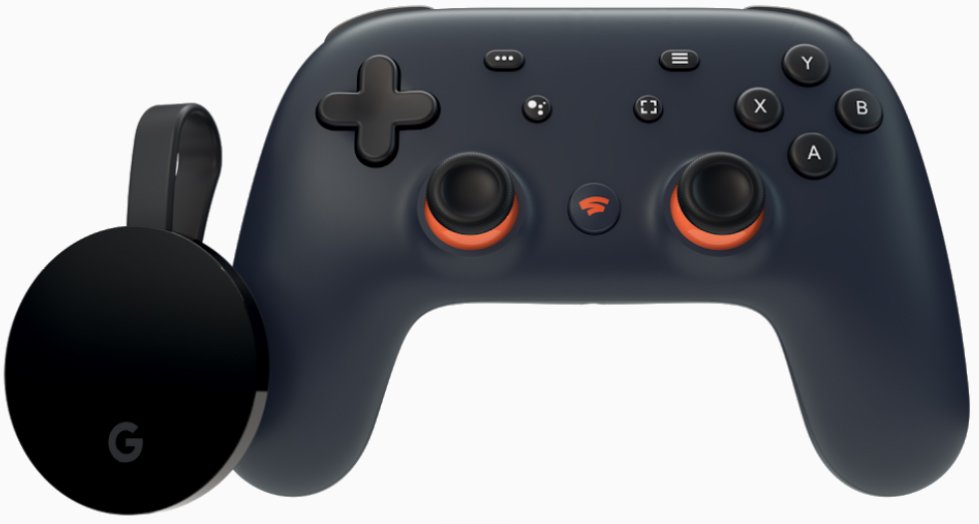
Gaming on many Google-enabled devices
With this limited-edition purchase you'll be able to use Stadia at launch in November. It comes with a limited-edition Night Blue Stadia Controller, a Google Chromecast Ultra, Destiny 2, and three months of Stadia Pro so you can access a number of games. It also comes with a Buddy Pass, which allows you to gift three months of Stadia Pro to a friend.
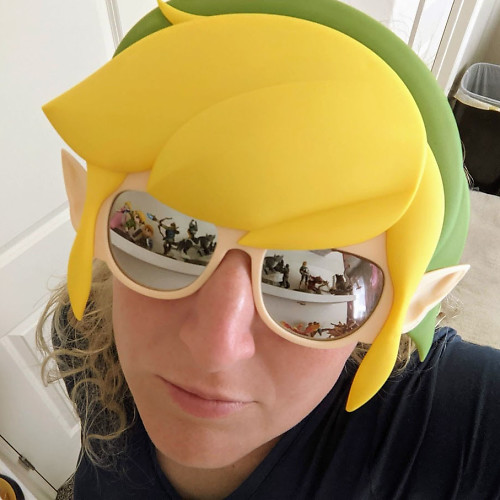
Rebecca Spear is a staff writer for Android Central who loves following the latest tech, drawing with her Wacom, and playing video games. You can find her posting about her pets, art, and video game preferences on Twitter @rrspear.
